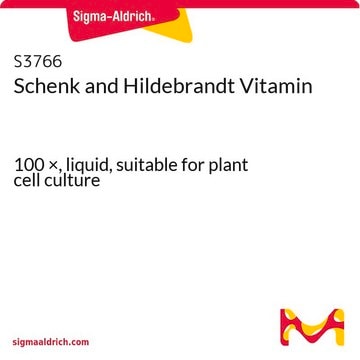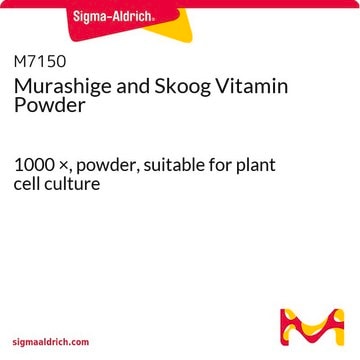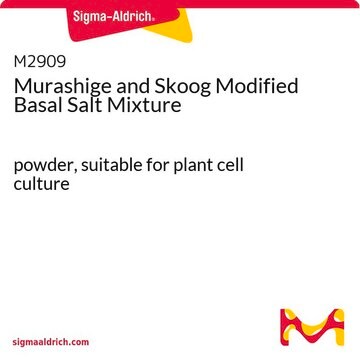G5768
Gamborg′s B-5 Basal Salt Mixture
fine powder, suitable for plant cell culture
Synonym(s):
B-5 Salt Mixture, Basal Salt Mixture, Gamborg B-5 Medium
About This Item
Recommended Products
form
fine powder
Quality Level
technique(s)
cell culture | plant: suitable
application(s)
agriculture
storage temp.
2-8°C
General description
Application
- as a constituent during the preparation of TEX buffer
- as a media to maintain potato suspension and callus cultures
- as a media in the primary-node transformation method
Formula variant
Media Formulation
Quantity
Signal Word
Warning
Hazard Statements
Precautionary Statements
Hazard Classifications
Ox. Sol. 3
Storage Class Code
5.1B - Oxidizing hazardous materials
WGK
WGK 1
Flash Point(F)
Not applicable
Flash Point(C)
Not applicable
Choose from one of the most recent versions:
Certificates of Analysis (COA)
Don't see the Right Version?
If you require a particular version, you can look up a specific certificate by the Lot or Batch number.
Already Own This Product?
Find documentation for the products that you have recently purchased in the Document Library.
Customers Also Viewed
Articles
Classical plant tissue culture media developed years ago by pioneers such as Murashige, Skoog, Gamborg, and others still play a vital role in plant tissue culture research today.
Our team of scientists has experience in all areas of research including Life Science, Material Science, Chemical Synthesis, Chromatography, Analytical and many others.
Contact Technical Service










